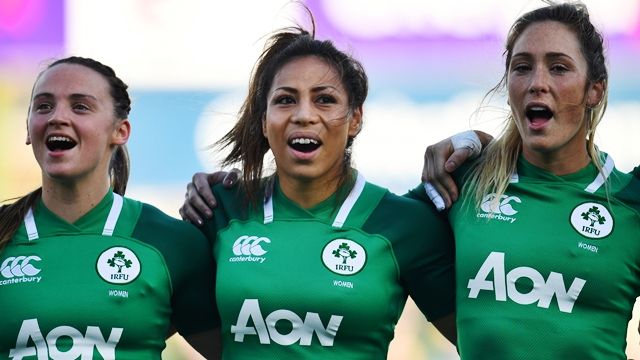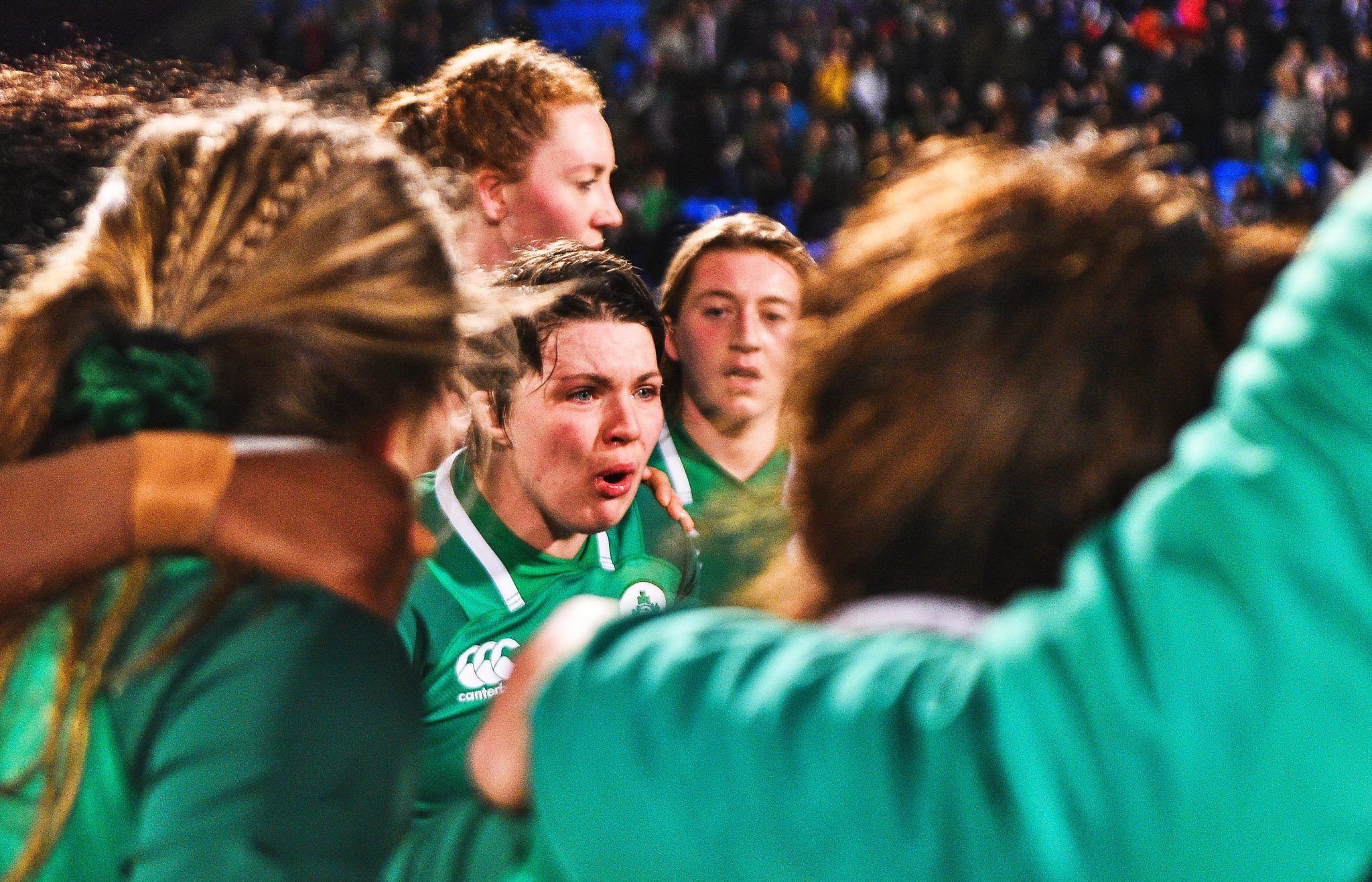

Share
9th March 2021
05:24pm GMT

 Eimear Considine makes a carry against England. (Credit: Sportsfile)[/caption]
"I don't think anyone expected it," said Considine of the Women's World Cup postponement.
Eimear Considine makes a carry against England. (Credit: Sportsfile)[/caption]
"I don't think anyone expected it," said Considine of the Women's World Cup postponement.
"There is a global pandemic, but we had been given such assurances that the World Cup was going to go ahead. I was back in work this week and was in a department meeting [at school] when I got a text to say we had a Zoom call an hour later. "We had a gym session out at the High Performance Centre at 6 o'clock. We had been told to wait in our cars, beforehand, because we're not allowed congregate [before training]. So we were all in our cars, waiting on the Zoom call... Unfortunately, a link on Twitter came up, through Scrumqueens, about the French Rugby (Union) putting something up about the postponement. "So we had already found out through social media about it. The official announcement was going out after 6 o'clock, so the plan had obviously been to tell us before then. There's always some sort of a leak."[caption id="attachment_187306" align="aligncenter" width="640"]
 Ireland players, from left, Michelle Claffey, Sene Naoupu and Eimear Considine pictured ahead of a match against the USA at Energia Park in 2018. (Photo by Ramsey Cardy/Sportsfile)[/caption]
Former Leinster and Ireland star Fergus McFadden sympathised with Considine and her teammates for what they are going through, having worked and trained all the way through the various lockdowns with that Women's World Cup as their end goal.
"Before I got to know you," he commented, "I was probably naïve in thinking just how much did the Irish Women’s team have to give up and sacrifice, to do all the training, the work/life balance, all of those things. Can you explain the implications it had for you? I know you’re trying to plan for a wedding, and other women in the team have lots of stuff going on. What is that like for you guys?"
"I suppose it’s just, it’s full-time," Considine replied.
Ireland players, from left, Michelle Claffey, Sene Naoupu and Eimear Considine pictured ahead of a match against the USA at Energia Park in 2018. (Photo by Ramsey Cardy/Sportsfile)[/caption]
Former Leinster and Ireland star Fergus McFadden sympathised with Considine and her teammates for what they are going through, having worked and trained all the way through the various lockdowns with that Women's World Cup as their end goal.
"Before I got to know you," he commented, "I was probably naïve in thinking just how much did the Irish Women’s team have to give up and sacrifice, to do all the training, the work/life balance, all of those things. Can you explain the implications it had for you? I know you’re trying to plan for a wedding, and other women in the team have lots of stuff going on. What is that like for you guys?"
"I suppose it’s just, it’s full-time," Considine replied.
"The fact that we obviously work Monday to Friday, 9 to 5... Every weekend, we are in at 5 o’clock on a Friday. Double session Friday, double session Saturday and double session Sunday. I come here [to record the show], I go to work on Monday and it starts all over again. And it’s just this constant busy routine of it. "It's great to be busy and I’m obviously delighted still to be able to train at the moment, when there’s so many teams that aren’t allowed to train. But I do feel a little bit hard done-by by the World Cup postponement... "There’s huge sacrifices. And I know, personally, we changed our wedding, because when the schedule came out, [Ireland] were flying on the day of our wedding. And I just said to Dean, ‘Look, I could be on a plane that day. We can’t have a wedding that day’. Thankfully, he was understanding and we moved our wedding. "But, again, it’s like, 'God. When will the qualifiers be now? When will the World Cup be? Will it get in the way of our wedding'. So that’s just me, personally, but every single person across the team has made sacrifices, and it’s asking a lot, for potentially another 18 months, to commit."[caption id="attachment_222358" align="aligncenter" width="2048"]
 Ireland captain Ciara Griffin sheds a tear as she addresses her team after a win over France. (Credit: Sportsfile)[/caption]
Considine points out that many females athletes have a consideration that their male counterparts do not have to worry about - starting families.
"Essentially, you are missing a year of your life," she said.
Ireland captain Ciara Griffin sheds a tear as she addresses her team after a win over France. (Credit: Sportsfile)[/caption]
Considine points out that many females athletes have a consideration that their male counterparts do not have to worry about - starting families.
"Essentially, you are missing a year of your life," she said.
"I don’t know the girls’ situations, on the team, but a lot of people will now put off having a family because, well, because it’s 12 months out. It’s nine months, having a baby, but you’re not going to come back after nine months. "It’s not just in Ireland. Women across the world, who are involved in an Olympic sport or involved in the Rugby World Cup in 2022, now, they’ll have to re-think everything about their lives. Because, at the end of the day, we need to get time off from our employers. "We need to get time off college and study. Even in the last few weeks, we’ve been stressing over, ‘Do we have to quarantine when we go to Spain and have to play those qualifiers?’. I had to have a chat with my principal, and thankfully they are understanding as well, and they really support my rugby journey, but there’s a lot of employers that don’t support our rugby journeys. "We were going to have to quarantine, coming back from Spain. That’s time off your job, and it causes so much stress – about having to make up the time again. You’re potentially using your holidays and using your annual leave to play in a World Cup and, financially, you’re losing out.""So, yes," Considine concluded, "there are a lot of sacrifices. We’re willing to do them, but I don’t think a lot of people are aware of the amount of sacrifices we make to play the sport."